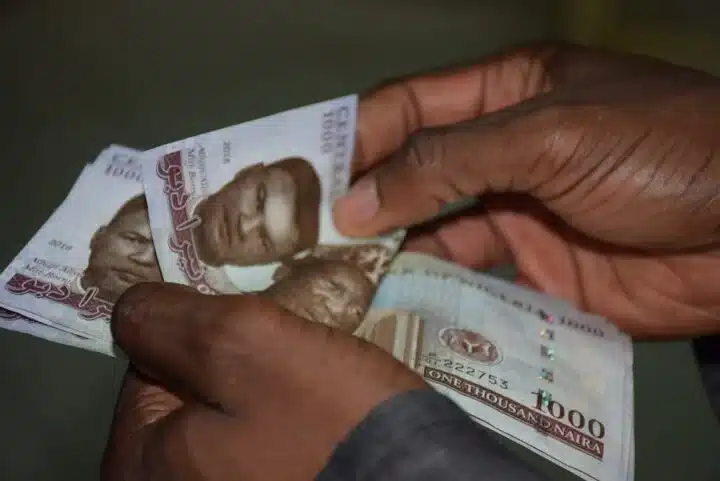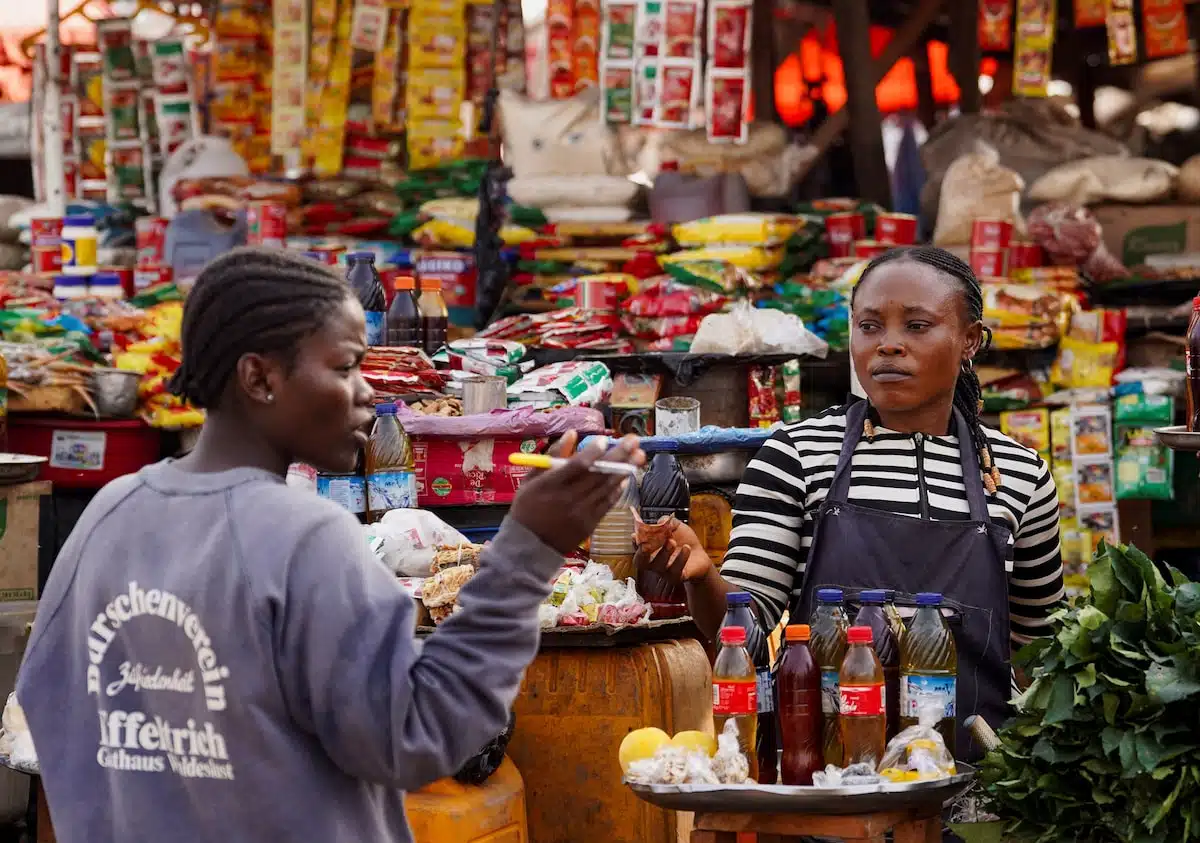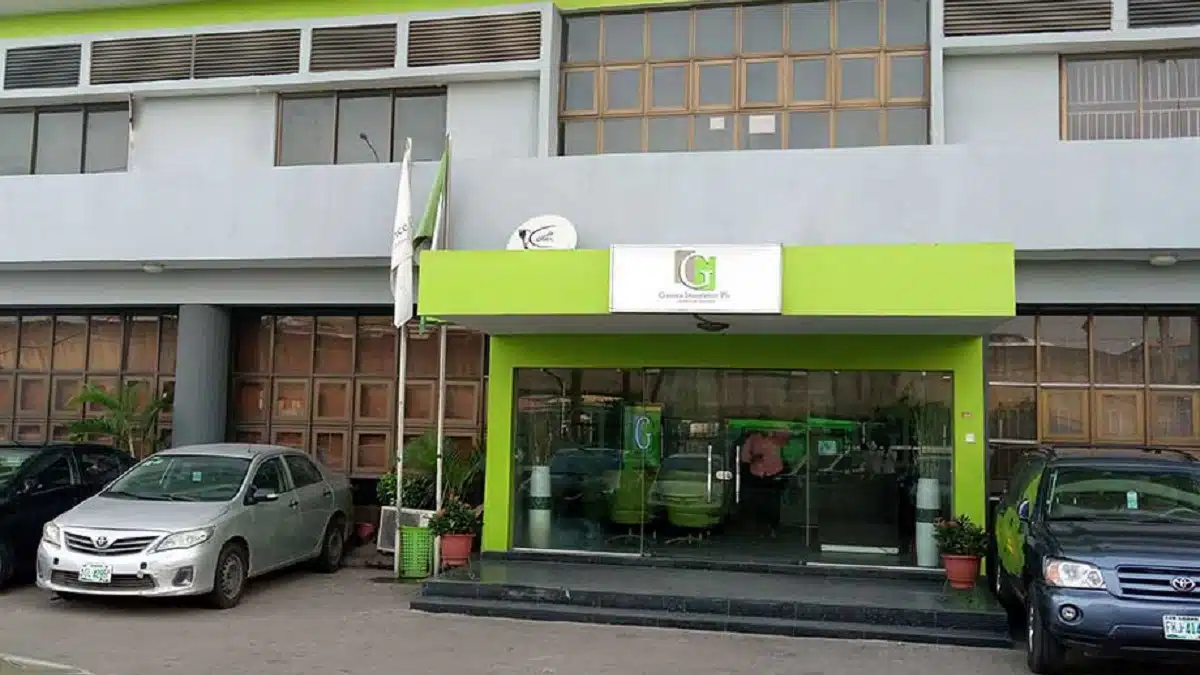Real household spending in Nigeria is projected to recover in 2025, reaching ₦25.7 trillion ($16.7 billion) — the highest in three years — after two straight years of decline, according to a new outlook report by PwC Nigeria.
The recovery could lift the living standards of cash-strapped households, though persistent inflation, high interest rates, and fiscal constraints remain key risks.
According to the report, aggregate real household spending contracted by 0.4% to ₦24.8 trillion ($16.8 billion) in 2024, dragged down by sustained inflationary pressures and weak income growth.
However, the professional services firm expects a turnaround this year, though it cautions that the recovery path will remain fragile, threatened by lingering price shocks, high interest rates, and fiscal challenges.
“While real household spending is poised to recover in 2025, the pace of growth may be undermined by persistent inflation, elevated borrowing costs, and tight fiscal conditions,” the report said.
Inflationary pressures and currency shocks
Despite the drop in real spending, nominal household expenditure grew by 33% in naira terms, rising from ₦142.6 trillion in 2023 to ₦237 trillion in 2024, but declined in dollar value to $160.3 billion from $221 billion.
PwC attributes this growth largely to surging food prices, rising transport fares, and higher costs of basic goods and services. “This trend is reflected in the contraction of real household spending, despite the expansion in nominal terms.”
Data from the National Bureau of Statistics (NBS) shows headline inflation eased for the fourth straight month to 21.88% in July 2025. Still, the scars of earlier policy shifts remain.
President Bola Tinubu’s in the second quarter of 2023, scrapped the petrol subsidy and liberalise the foreign exchange market, to stabilise public finances and attract investments.
However, the immediate impact was a sharp spike in the cost of transport, food, and other essentials. The naira’s steep depreciation further drove up import costs, sending inflation to 27.3% by October 2023—the highest level since 2005.
PwC highlighted that “given that transportation is a non-discretionary household expense, the continuous increase in its cost is contributing significantly to rising living expenses.”
Mixed outlook for incomes and living standards
Beyond household spending, Nigeria’s income trajectory remains uncertain. The International Monetary Fund (IMF) in February projected that average income would rise to $940.2 in 2026 from $835.4 in 2025.
However, in its April update, the IMF revised its forecast downward, projecting per capita income at $804.5 in 2026 and $864.8 in 2027.
This volatility underscores the country’s economic fragility. “Nigeria’s GDP per capita has experienced significant swings, reflecting inadequate investment in infrastructure and human capital, which have intermittently suppressed growth and living standards,” analysts at CSL Research said in a note in February.
Inflation expectations remain sticky
The Central Bank of Nigeria’s (CBN) recent inflation expectations survey suggests that most households and businesses remain unconvinced of a rapid slowdown in price growth.
Over 80% of households surveyed believe inflation will remain elevated over the next three to six months, citing persistent energy costs, higher transport expenses, and exchange rate volatility.
Specifically, 41.3% of households expected high inflation by September 2025, rising to 43.2% by December. Conversely, those expecting a decline in inflation grew from 17.3% in July to 25.7% in December, indicating cautious optimism.
The business outlook showed a similar split. While 71% of firms expect inflation to remain elevated, the proportion anticipating a decrease grew significantly—by more than 20 percentage points—by the end of 2025. PwC interprets this as a sign of improving confidence in CBN’s monetary tightening and reforms.
Policy recommendations
PwC urged policymakers to remain focused on stabilising prices while creating space for inclusive growth.
“Maintaining a disciplined monetary stance will be critical to curbing inflation and stabilising the naira,” the firm said. At the same time, it recommended channeling credit to productive sectors such as agriculture and manufacturing to spur sustainable growth.
The report further emphasised the need for stronger social investments. “Scaling up investments in education, healthcare, and social safety nets will cushion vulnerable populations from inflation shocks and reduce poverty,” PwC advised.
The 2025 figures were originally reported in naira and converted using the official exchange rates of $1 = ₦1,534.9 as of August 19, 2025; ₦1,478.9 for 2024; and ₦645.2 for 2023.









